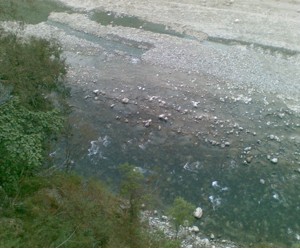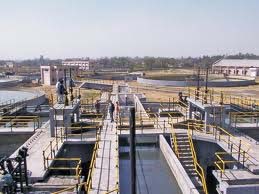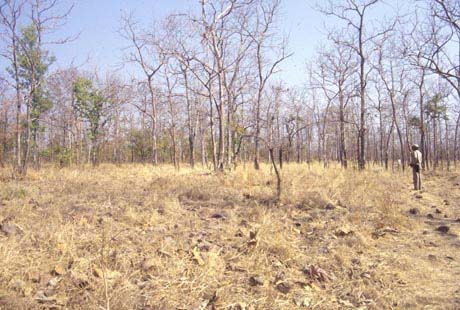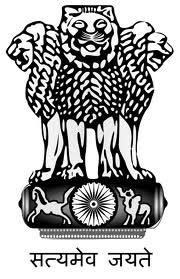/regions/india
India
Water conservation through better irrigation
Posted on 26 Sep, 2011 11:30 AMArticle and image courtesy: IndiaWaterReview

The agriculture sector in India, like elsewhere in the world, remains the largest consumer of water. As much as 80-85 per cent of India's available water resources are deployed annually in the agriculture sector, with industry being the second-most largest water consumer. But, contrary to the amount of efforts being put among industrial consumers to bring down their water consumption, agriculturists remain stuck on age-old methods and systems that lead to wastage of water.
So, while industry has been spending money on conducting in house research and development (R&D) to bring down their overall water consumption for making goods and products as well as deploying technologies that treat and reuse water and wastewater better, the agriculture sector has maintained status quo. Across India, farmers are still using flood irrigation methods for their crops. Most of them have not even head of drip irrigation or are so poor that they cannot afford to invest in drip irrigations systems.
WSP-South Asia invites Short Term Consultants for SDA, Orissa, Bihar, MP, Karnataka & Meghalaya
Posted on 26 Sep, 2011 09:55 AMContent courtesy: DevNetJobsIndia.org

The Water and Sanitation Program (WSP) is a multi-donor partnership administered by the World Bank to support poor people in obtaining affordable, safe and sustainable access to water and sanitation services.
EU supported programme on urban local bodies in development - Call for proposals - Apply by November 18, 2011
Posted on 25 Sep, 2011 07:24 PM
India and the European Union (EU) are committed to an equal and dynamic dialogue on all areas of mutual of interest and concern as major actors in their own regions, and as emerging global players on the world stage. In today’s rapidly evolving international order, India and the EU are increasingly called upon to play major roles, both within their respective regions and beyond. The challenge for both is to strengthen the EU-India partnership through institutional and civil society frameworks and mechanisms that will sustain the necessary political will to fully realise all joint endeavours.
Revised guidelines for the centrally sponsored scheme of Common Effluent Treatment Plants (CETPs) - Ministry of Environment & Forests, 2011
Posted on 25 Sep, 2011 06:03 PM
Image courtesy: www.projectsmonitor.com
Under the Water (Prevention and Control of Pollution) Act, 1974, every industry has to provide adequate treatment of its effluents before disposal, irrespective of whether it is in stream, land, sewerage system of sea. The small scale industrial units (SSI), which are presently defined as units whose plant and machinery are valued at less than Rs. 5 crore occupy an important place in the country's economy. The SSIs are a major contributor to the total industrial pollution load of the country. However, only a small fraction of the effluent discharge from these units is estimated to be treated as on date.
Procedure to be followed for consideration of projects that involve forestland for grant of environment clearance
Posted on 25 Sep, 2011 04:59 PMThe Ministry of Environment and Forests (MoEF) has based on consultation with stakeholders revised the procedure to be followed for consideration of projects that involve forestland for grant of environment clearance under EIA Notification, 2006. The requirement of information/data/documents for such projects is also outlined in the office memorandum.

Image courtesy: Ministry of Environment and Forests
The Ministry of Environment and Forests (MoEF) had earlier issued an office memorandum vide no. J-11015/200/2008-IA.II(M) dated 31.3.2011 prescribing the procedure to be followed for consideration of projects for environmental clearance, which involve forestland.
Evaluation of Central Pollution Control Board (CPCB) – A report by Indian Institute of Management Lucknow
Posted on 25 Sep, 2011 02:41 PMThis evaluation report by the Indian Institute of Management (Lucknow) of the Central Pollution Control Board (CPCB), a central institution established to set environmental standards for all parts of the country focuses on strengthening of CPCB and its preparedness to undertake various measures as suggested by environmental statutes.
State geology and mineral maps – Geological Survey of India Miscellaneous Publication Series
Posted on 24 Sep, 2011 04:07 PMThe Geological Survey of India (GSI) has been preparing state geology and mineral maps as a part of its Miscellaneous Publications series from time to time. During the span of three and a half decades since the first edition was published, enormous knowledge has been added in the sphere of geology of the areas necessitating revisions. The entire modified and updated series published at various points of time is available here.
Goa, going, gone – A film by Carmen Miranda on Goa’s mining
Posted on 24 Sep, 2011 03:03 PMGoa, going, gone – A film by Carmen Miranda on Goa’s mining
As you may have assumed from its title, “Goa, going gone” is about Goa - - or more specifically, it’s about the environmental impact that is likely to result from the rampant mining that is underway in the state. Goa is being dug out of existence and gigantic craters expand across a 95 km long mining belt.
Sambodhi Research & Management Institute, Call for paper - South Asian Journal of Evaluation in Practice
Posted on 23 Sep, 2011 02:50 PM

Sambodhi Research and Management Institute is a leading research and advocacy organisation that works to promote and demystify areas of knowledge, which would contribute to social as well as organizational development. It offers services spanning:
National Rural Livelihoods Project invites applications from Consultants - Apply by October 3, 2011
Posted on 22 Sep, 2011 11:54 AM
National Rural Livelihoods Mission (NRLM) aims at creating efficient and effective institutional platforms of the rural poor enabling them to increase household income through sustainable livelihood enhancements and improved access to financial and selected public services. Towards this purpose, the Government of India has availed a credit from International Development Association and the International Bank for Reconstruction and Development for the National Rural Livelihoods Project (NRLP) which aims to support the NRLM.